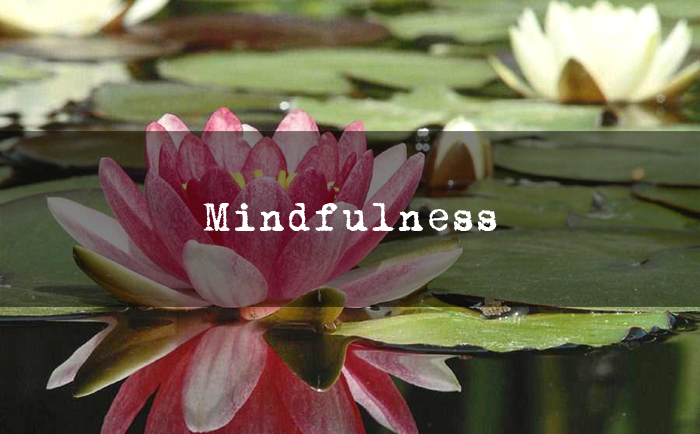“To the quiet mind all things are possible.” –Meister Eckart


by Eckhart Tolle
The word enlightenment conjures up the idea of some super-human accomplishment, and the ego likes to keep it that way, but it is simply your natural state of felt oneness with Being. It is a state of connectedness with something immeasurable and indestructible, something that, almost paradoxically, is essentially you and yet is much greater than you. It is finding your true nature beyond name and form. The inability to feel this connectedness gives rise to the illusion of separation, from yourself and from the world around you. You then perceive yourself, consciously or unconsciously, as an isolated fragment. Fear arises, and conflict within and without becomes the norm.
I love the Buddha’s simple definition of enlightenment as “the end of suffering.” There is nothing superhuman in that, is there? Of course, as a definition, it is incomplete. It only tells you what enlightenment is not: no suffering. But what’s left when there is no more suffering? The Buddha is silent on that, and his silence implies that you’ll have to find out for yourself. He uses a negative definition so that the mind cannot make it into something to believe in or into a superhuman accomplishment, a goal that is impossible for you to attain. Despite this precaution, the majority of Buddhists still believe that enlightenment is for the Buddha, not for them, at least not in this lifetime. Read More

by Pema Chödrön
As a species, we should never underestimate our low tolerance for discomfort. To be encouraged to stay with our vulnerability is news that we definitely can use. Sitting meditation is our support for learning how to do this. Sitting meditation, also known as mindfulness-awareness practice, is the foundation of bodhichitta training. It is the home ground of the warrior bodhisattva.
Sitting meditation cultivates loving-kindness and compassion, the relative qualities of bodhichitta. It gives us a way to move closer to our thoughts and emotions and to get in touch with our bodies. It is a method of cultivating unconditional friendliness toward ourselves and for parting the curtain of indifference that distances us from the suffering of others. It is our vehicle for learning to be a truly loving person.
Gradually, through meditation, we begin to notice that there are gaps in our internal dialogue. In the midst of continually talking to ourselves, we experience a pause, as if awakening from a dream. We recognize our capacity to relax with the clarity, the space, the open-ended awareness that already exists in our minds. We experience moments of being right here that feel simple, direct, and uncluttered. Read More

by Lorane Gordon
In order to be mindful, leave your mind out of it!
What does being mindful really mean? It’s about being aware; aware of everything that is going on within and without. When we’re mindful we experience the color of the sky, the green of the grass. We really see the blossoming of nature and smell the fragrance in the air. We feel the essence of another and see their soul within their eyes. We recognize that we’re part of the life energy that is all around us and within all things. This understanding brings about a feeling of quiet joy, a feeling of reverence, a feeling of peace. This is bliss consciousness, and it can be yours!
Let me explain. Our mind has over 60,000 thoughts a day. Each and every day! Imagine the amount of words it takes to simply form that many thoughts. More than 95% of those thoughts are nothing more than repetition. Think about it. Have you ever noticed that when you’re trying to solve a problem you just keep repeating yourself? In the course of the day we are constantly saying the same things to ourselves, over and over again. When your mind is full of noise you don’t have enough silence to hear what is being said let alone come up with a solution to a problem. In order to be mindful, we have to first quiet the mind. Read More

by Laura V. Grace
A Course in Miracles teaches us that fear has become so familiar and such a common, everyday feeling, that love—our core essence—is now the stranger. Having fallen asleep to the love inside, we have become alien to what’s in our hearts. “There is a stranger in our midst [fear], who comes from an idea so foreign to the truth he speaks a different language, looks upon a world truth does not know, and understands what truth regards as senseless. Stranger yet, he does not recognize to whom he comes [love]…And yet, how easy it would be to say, ‘This is my home. Here I belong, and will not leave because a madman says I must.’” Like Dorothy in the Wizard of Oz, we have forgotten we need only ask that we be returned “home” to love, which like Heaven, is a state of mindfulness, something that I call loving mindfulness.
Fear, as love, is a choice. It’s not something that will exist whether we like it or not; it’s something we give birth to whenever we choose to focus on it. This lesson has been one of the hardest for me to learn. Intellectually, it has always made sense. But emotionally, when fear has surfaced, I have sometimes felt paralyzed. Recognizing that everything is either love or fear, I’ve discovered in my own life that fear is everywhere and thus I cannot afford to wait for it to disappear, because it won’t. I must feel it, ask for guidance in connecting with the love inside me, then mindfully extend it to others through my thoughts, words and actions. Read More…

by Joan Borysenko, Ph.D.
I once heard patience defined as “impatience stretched to its limit.” The implication was that most people have no idea what patience really is. In the name of patience, we often hold back like a pit bull straining against its leash. We are not present at all—just trying to look pleasant while our blood boils. Inside, we’re wishing that the traffic would clear, that our child would go to bed, or that our colleague would shut up already. A lot of energy is used up in the name of this false patience.
Real patience requires a gentle willingness to let life unfold at its own pace. This willingness, in turn, requires mindfulness. If I’m present to the fading blossoms as they are, there’s a subtle beauty in their dying that is no less engaging than in their opening. The beauty is not so much in the flower as in the relationship to it. That which we have truly known and loved in all its phases is more precious still as it fades away. The same was true of James. He was as beautiful in his dying as he was at the height of his power. In the years since his death, I have acquired three large Christmas cactuses. When their brief and prolific blooming comes to an end, I think of James and send him a blessing. Read More

by Lenedra J. Carroll
“I’m afraid I have bad news about that demo tape, Jewel,” I tell her playfully. “I’m not going to help you make it.” We are walking along a favorite stretch of beach; the low sun casts a golden hue on the foam at the water’s edge. It swirls around our toes. For months now she has been requesting my help to create a tape of her songs to pitch to record labels. Each time I asked her to focus instead on deciding what she most wants to do. Now that she knows she wants to pursue a career in music she is asking again about making the demo.
Splashing in the sea froth at my feet I say, “Let’s not do it that way! Making a demo tape and knocking on doors, trying to get others to listen, pitching you loud enough for someone to hear…all of that is part of an old way of working that has nothing to do with us. We don’t need to participate in any of it. No one needs to really. There’s an entirely different way to work in business. It utilizes the principles of the outgoing wave.” Read More

by Jeff Hutner
In the sixties there were Hippies. In the 80’s, Yuppies and in the new millennium, a new mutation of humans gained momentum–The Nowies. Rooted in the present, these individuals are easily identified by their unwillingness to become attached to thoughts, people, or things. They simply live in the moment. Easier said than done.
We live in a culture of distractions designed to alleviate the psychic pain and stress most people are assaulted by each day. Many of us have become trapped by past events projected onto the blank canvas of the present. People and events that have negatively impacted our lives continue to be replayed over and over in new forms until we learn how to break that cycle. Fear of things to come is also a projection on our white screen of the moment. This future worry is also associated with the past since it hasn’t happened yet and, therefore, must relate to something we have taken in that might lead to a dangerous situation sometime or somewhere. In either event, past or future projections on the present tend to deaden the moment and make it and us a shadow of true potential. Read More




